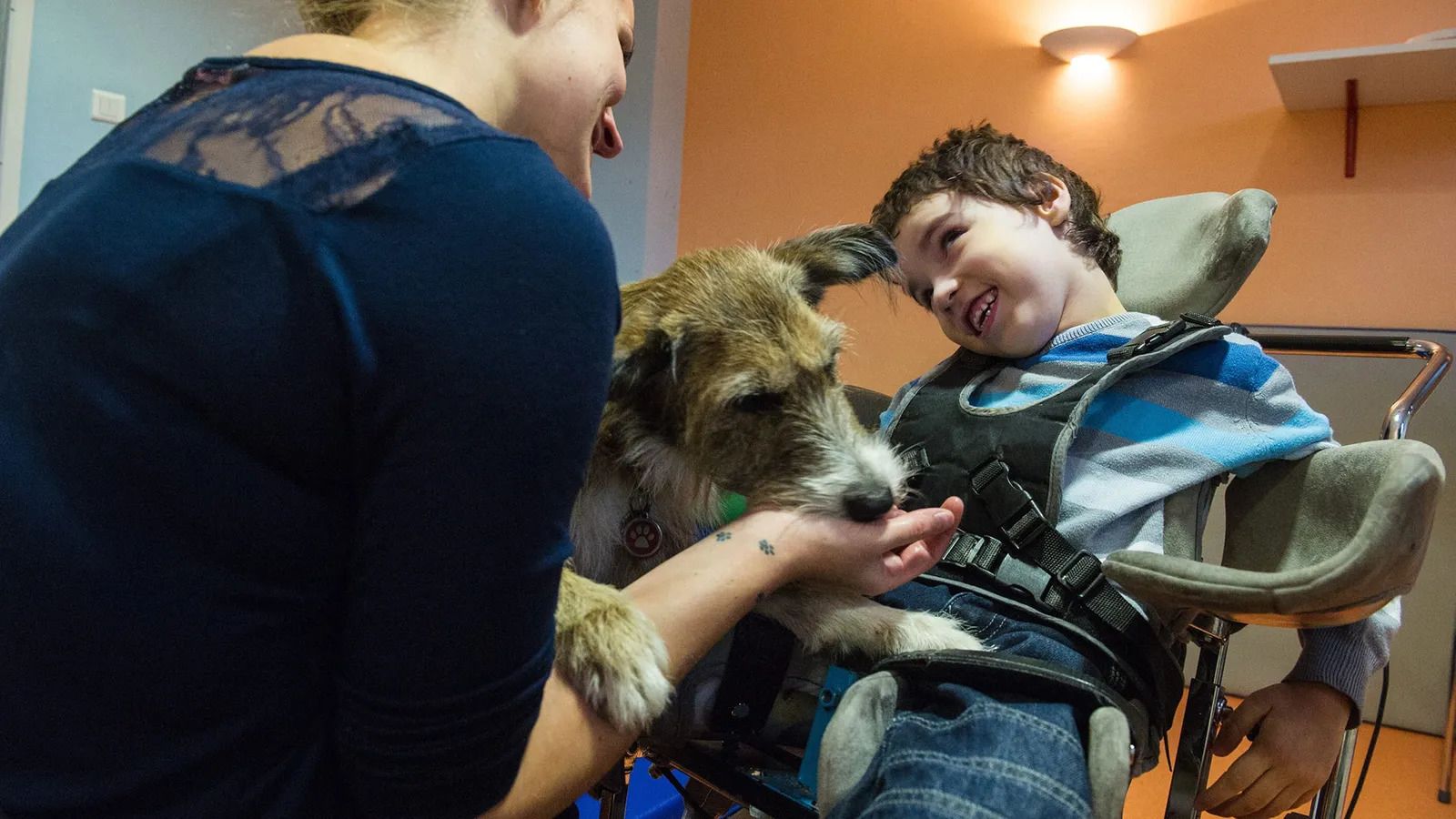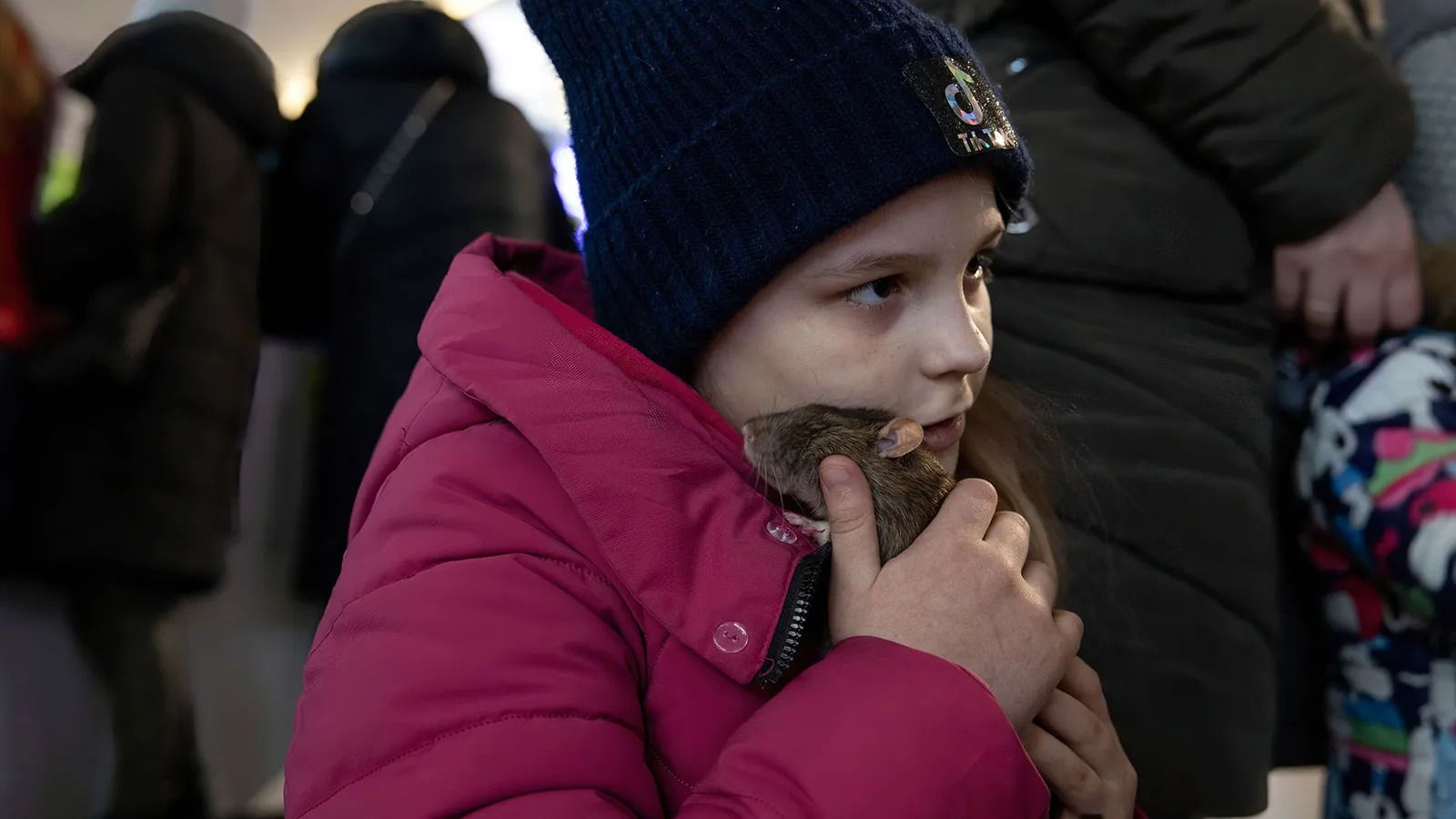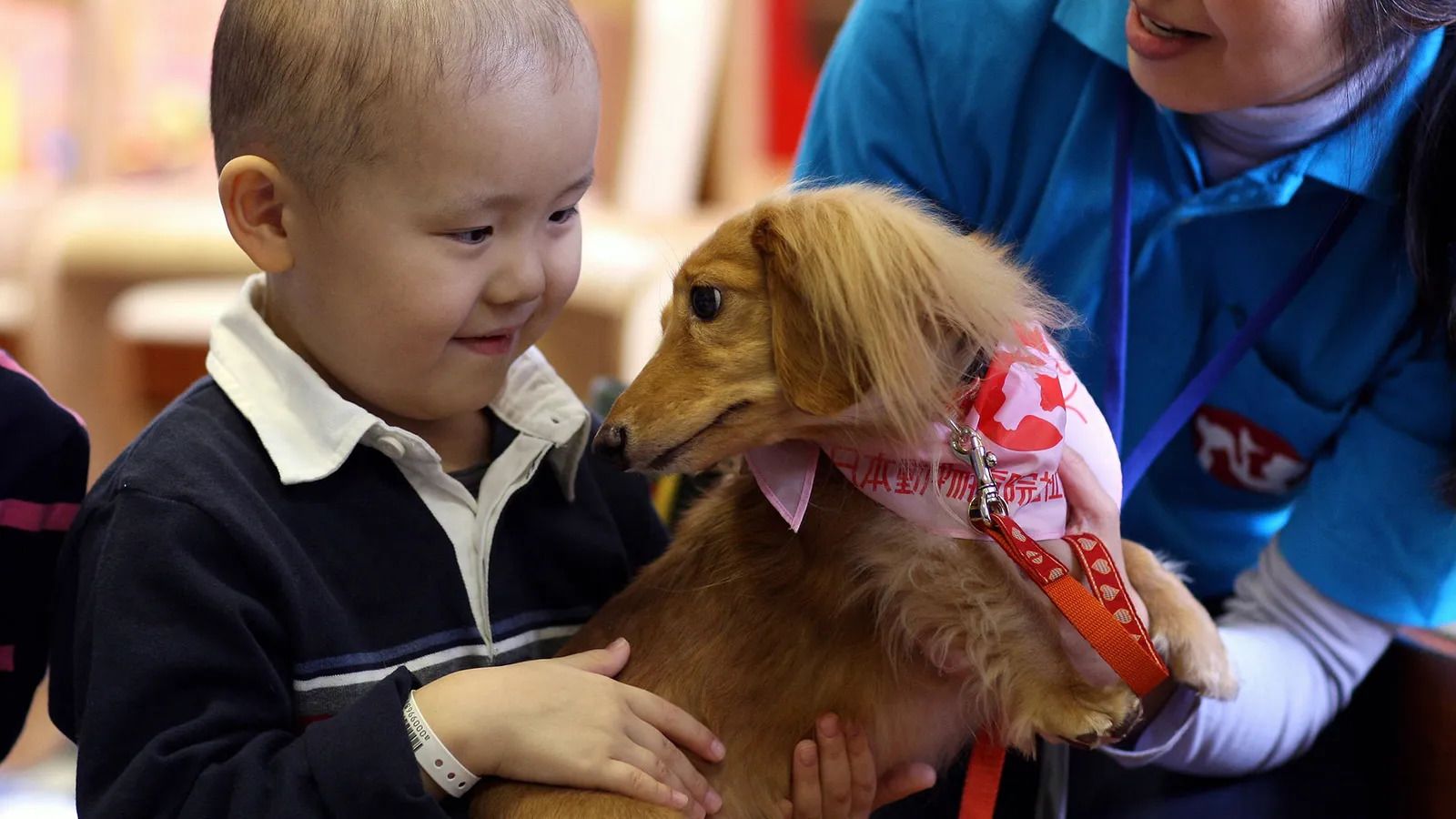
How pets give your kids a brain boost
Pick up a book from a young child's bookshelf and you're more likely to find an animal protagonist than a human one. From very hungry caterpillars to great big humpback whales, children seem universally fascinated by animals. But while characters in a picture book are often far removed from reality, the pets many of us share a home with offer children a more realistic glimpse of the animal world – and a meaningful relationship that influences them in a whole host of other ways, too.
Understanding that relationship may not only help parents choose the right pet for their child, but also give them deeper insights into the factors that make for a truly successful bond.
For many people, pets are much-loved family members who provide support across many stages of life. They can help couples to cement their relationship, act as playmates for young children, and provide companionship for parents when children leave home. One study in the US found that 63% of households with a baby under 12 months old had a pet, and an Australian study found a 10% increase in pet ownership around the time the children start school.
Many parents intuitively feel that looking after an animal can offer children valuable lessons about caregiving, responsibility and empathy. "It's really important, especially for young kids, to learn that someone's perspective might be different from their own," says Megan Mueller, associate professor of human-animal interaction at Tufts University, US. "That's an easier lesson to learn, perhaps, with an animal than it is with, say, a sibling or a peer."
But claims about the beneficial impacts of pets on children go further, suggesting that pets can influence children's social skills, physical health, and even cognitive development, and that keeping them is associated with higher levels of empathy. For children with autism and their families, pet care may help reduce stress and create opportunities to form supportive bonds.
Other research shows that children gain from animals in-the-moment, too. In one pair of studies, children made fewer errors on an object categorisation task and needed fewer prompts in a memory task when there was a dog in the room. Research has even found that, for adults at least, the simple act of viewing our pets as family members improves our wellbeing – though headlines touting the wide-ranging benefits of pet ownership are not without criticism, since people often believe that their pets improve their health and happiness, even when objective measures don't show any difference.
 A boy enjoys a session of dog-assisted therapy in France
A boy enjoys a session of dog-assisted therapy in France
Interacting with pets – and with other people
So, are pets truly at the root of all these benefits, or do we just think they are? Hayley Christian, associate professor at the School of Population and Global Health at the University of Western Australia in Perth, is one of the researchers attempting to unravel cause from effect.
Using data from a longitudinal study of 4,000 children at ages five and seven, Christian and colleagues discovered that pet ownership was associated with fewer peer problems and more prosocial behaviour. In separate research they found that children aged 2 to 5 with a family dog were more active, spent less time on screens, and slept more on average, than those without a pet.
Crucially, it was the dog-facilitated physical activity – such as going on family dog walks – that made the difference.
Then, in a study published last year, they put these two pieces of the puzzle together. After controlling for factors such as socio-economic status, the researchers saw that children who regularly engaged in dog-related physical activity had better developmental outcomes.
"We can actually say that children having pets and interacting with them over time in early childhood does seem to cause these added benefits in terms of their social-emotional development," says Christian, who is also a senior research fellow at the Telethon Kids Institute.
That's not to say that every family should get a pet – or every child with a dog is better off than those without. Behavioural issues, complex medical needs and the financial burden of caring for an animal can all make life with a pet less than rosy. Families living in housing that is not pet-friendly face further barriers. "I don't think we're ever going to get to the point where we recommend that everyone with a kid gets a dog," says Mueller.
In fact, Mueller looked into whether the mental health of US teenagers with pets was better than their non pet-owning counterparts during the Covid-19 pandemic – and found that the animals appeared to make no difference. "My hypothesis is that Covid was a huge stressor and there probably isn't one thing that's enough to overcome it," she says.
It's also possible that the pandemic put a stop to one of the ways in which living with a dog can give us a boost. "We get the social benefits from interacting with the dog, but there's also this way in which animals can facilitate social interaction with other people," says Mueller. During lockdowns, teenagers might have stuck to their daily dog walks but avoided conversations with other dog walkers, losing out on small moments of social interaction.
 A Ukrainian girl cuddles her pet at Warsaw train station. Children rank
pets as some of the most important beings in their lives, research shows
A Ukrainian girl cuddles her pet at Warsaw train station. Children rank
pets as some of the most important beings in their lives, research shows
Building a strong relationship
When it comes to the positive influence of pets on children, the state of their relationship is key – not just living under the same roof. "Relationship quality seems to be a better predictor of some of these health outcomes than just whether or not you have a pet in the home," says Mueller.
Time spent with a pet is one factor. If your sibling has a hamster that lives in their room, you're unlikely to feel very attached to it, for example, compared to a family dog that you walk every day after school.
A child's age can also help determine how solid their relationship with a particular pet becomes. Children aged between six and 10 develop stronger bonds with animals that are more similar to humans, like cats and dogs, than with biologically far-removed species like birds and fish. But older children, aged between 11 and 14, report being just as attached to less closely-related species – including mice – as they are to their dogs or cats.
Family dynamics also play a part. The Australian longitudinal study saw that children without siblings can especially benefit from pets – perhaps because they sometimes act as a surrogate sibling. "Parents are more likely to allow their child to be independently mobile [for example, run an errand alone] if they went with a sibling or a friend," says Christian. "And guess what else? A dog."
Babies in households with a pet are better at recognising animal faces by the time they are 10 months old, research shows
Pets can even aid social interactions within households. In foster families, research suggests a pet can help facilitate close relationships between foster carers and children, as well as providing companionship in its own right.
When children get to know their pets, it opens them up to a deeper understanding of animals in the wider world. "They tend to learn from their pet, somehow, how to be more understanding, empathetic and responsive to animals in general," says John Bradshaw, former reader in companion animal behaviour at the University of Bristol, UK, and author of several books on cats and dogs.
One study in the UK found that children who had pets at home were more likely to have higher levels of belief about animals' minds, that is, thinking that animals have thoughts and feelings of their own.
"You can have all sorts of imaginary stories in your head about a lion, but until somebody takes you to Africa, you'll never meet one in the wild," he says. "But a dog or a cat is there and can teach you about what it's actually like to be an animal, that animals are not human, they have very special lives that belong to them and not to us."
Even young babies are watching and learning about the animals they live with. Research by Karinna Hurley and Lisa Oakes at the University of California, Davis, US, found that infants in households with a pet were better at recognising animal faces by the time they were 10 months old than those without.
What's more, a child's relationship with their pet could provide a much-needed link with nature. "To have a real living, breathing, slightly messy animal running around the house is a good way of making those connections," says Bradshaw.
 A boy bonds with a dog at a hospital in Tokyo. Pets can benefit children's development in many different ways, studies show
A boy bonds with a dog at a hospital in Tokyo. Pets can benefit children's development in many different ways, studies show
What do animals think of kids?
Remembering our pets' wild origins can give us an insight into how they see our families.
Dogs evolved to live alongside humans and have the potential to form very strong bonds with us. Cats, on the other hand, are solitary creatures at heart. Even so, they do seem to regard their human housemates as family. "Our cats greet us by raising their tails and rubbing around our legs – precisely what they do when meeting another cat they know well or consider a family member," writes Bradshaw in his book, The Animals Among Us.
But whether this kinship translates to children depends on a pet's own early life experiences.
Both cats and dogs have a brief window – for puppies this is between around eight and 16 weeks of age – where they learn about the sorts of people they might encounter in their lives. "We know that if puppies or kittens have not met children at all by the time they get to six months or so – depending on their underlying temperament – they can display really quite adverse reactions," says Bradshaw. "That suggests that they don't really recognise children as human, unless they've been introduced to them as part of the humanity package."
This makes perfect sense when you look at it from the animal's point of view, he says: "A baby is nothing like an adult human. It's much smaller, it can't stand up, it makes very different noises to an adult human, and it smells very different to an adult human."
Children rank pets as some of the most important beings in their lives – but pets can take time to get used to kids
Understanding how a pet sees the world is vital to making sure everyone gets along. If a cat urinates on a new cot or pram brought into the house, it's easy to jump to conclusions. "If you were not sympathetic to the way the cat thinks you might think, 'Oh, the cat's just getting cross because I'm going to have a baby, it must know'," says Bradshaw. "Of course, they don't know. It's very often the olfactory environment [the smell of the home] that's been churned up and the cat's lost its familiar points of reference."
Both cats and dogs rely heavily on their noses, so having lots of new smells in the house is like "coming home and finding that someone has painted your walls completely opposite colours," says Bradshaw. On the flip side, familiar scents can keep them happy. In one trial, Bradshaw and his colleagues put a t-shirt that had been worn by a dog's owner into their bed. "That familiar smell seemed to work wonders for the dog, they were much more relaxed," he says.
Not anthropomorphising our pets – meaning, expecting them to think and behave like humans – is especially important when it comes to a child's safety. "You can never be 100% sure how a dog is going to react in any one given situation," says Bradshaw. "There's all sorts of possible things which can trigger the dog into a different mode of behaviour, maybe one that the owner has never seen before."
Ultimately, each child-pet relationship is unique, with its own quirks, benefits, and pitfalls – and in some ways researchers are only just starting to understand what makes a child's relationship with their pet mutually beneficial. "The field is really moving towards looking at these more individual differences," says Mueller.
Meanwhile, children themselves rank pets as some of the most important beings in their lives, seeing their animal companions as a comfort and emotional support, as well as being infallible confidantes for a secret. Some of those benefits "are very difficult to quantify because they're very individual, and science deals in populations and big numbers," says Bradshaw. "Just because it's not very tangible and easily measured, it doesn't mean it's not real."










